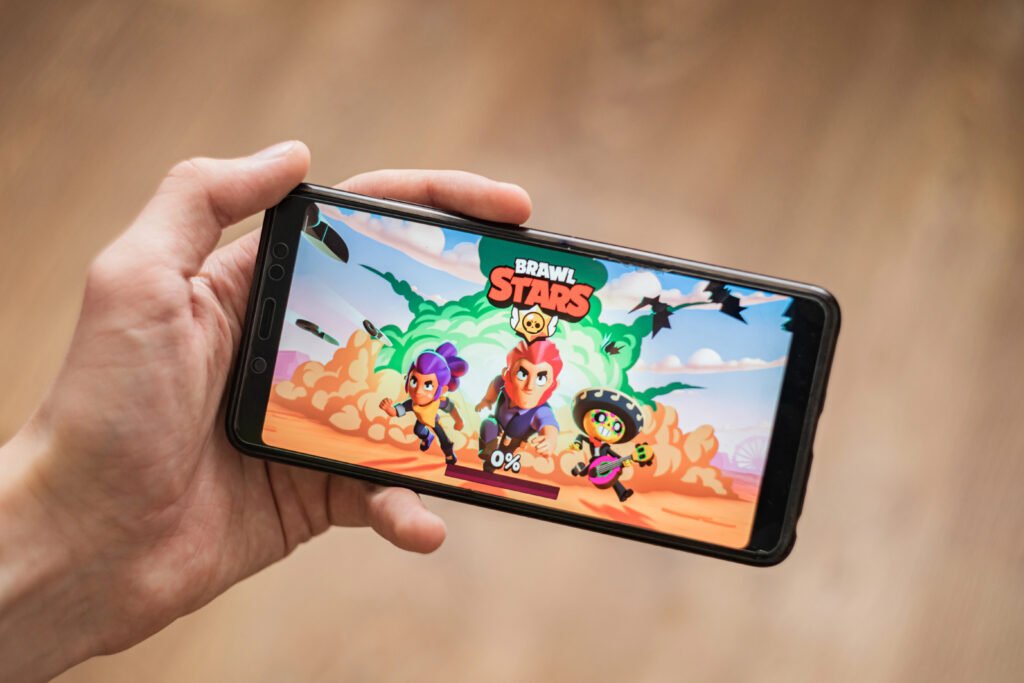MobThe mobile game industry has significant potential since it generates over $300 billion yearly in sales. Despite the success of this industry, only 4% of mobile games will earn more than $1 million. On the other hand, games only earn around $3,000 over their average lifetimes. Without an effective game app business plan, most new games will fail within months.
Generic business plan templates may work for some industries. However, game startups don’t operate like those in other industries. Startups in this industry must compete for users’ attention in a saturated and low-retention market. As a game developer or founder, you must consider several factors that don’t relate to other industries.
Having written hundreds of business plans for mobile games, we know exactly what it takes to impress potential investors. In this article, we’ll explain everything you need to know to write an effective game app business plan.
Important Game App Statistics
Given the common challenges for these startups, why would an entrepreneur want to launch a game? The easy answer is – the revenue potential is immense. Check out these statistics related to the mobile game app industry:
- As of July 2022, there were 3 billion new gamers, 5.3% more than the previous year.
- Users spend $57.64 purchasing games or in-game items, according to Statista.
- Mobile gaming is the most lucrative gaming sector, making up 49% of the total games market revenue.
- Mobile gamers spent an average of $1.5 billion weekly on mobile games between 2020 and 2023.
These statistics showcase massive potential for game creators. Unfortunately, though, even getting to the launch phase can be difficult and expensive. Simple games can cost tens of thousands of dollars, while graphic-heavy games might run into the hundreds of thousands. These are development costs and don’t include expenses like marketing and user acquisition.
Fortunately, securing investors can streamline your ability to bring your mobile game to life. In this post, we will provide several tips on creating a fantastic game business plan that wins over investors.

Game App Business Plan Considerations
Creating a business plan for a game company isn’t quite the same as for other industries. While there are many similarities, the differences are massive. For example:
- Every business plan requires market research. However, a mobile game business plan may have a broader target market with various demographics.
- Every business must describe its revenue strategy in its business plan. However, a mobile game’s business model may have numerous revenue streams the plan must detail.
- Every business has competitors it must analyze. A game app business plan may have dozens of competitors operating in the market at a given time.
Let’s discuss a few essential factors to consider when writing your game plan.
Mobile Game vs Mobile Game Startup
Before you start writing about what you’re building, you must decide precisely what you’re building. Developing a mobile game vastly differs from developing a mobile game app startup.
Generally speaking, mobile games are one-off projects. Developers build a game, launch it, and once it runs its course, it fades away.
A mobile game startup, however, is a business that produces mobile games. They seek to understand what makes games successful. Then, they develop a formula that allows them to bring numerous games to success.
While one game is reaching its peak in the market, the company is already working on the next game. This allows them to maintain a constant flow of new products and developments.
Ideally, every mobile game startup will produce at least one mobile game. However, not every game publisher can categorize themselves as a mobile game startup. Knowing what you are planning to launch will help you focus your game app business plan and set the reader’s expectations.
Most investors would prefer investing a mobile game startup over a one-off mobile game. The likelihood of striking an investor deal rises drastically if your startup has traction.
If you are only interested in building a single game, crowdfunding may be a more appropriate option!
Product & Development
The Product & Development section describes your game and its features. Furthermore, it provides a roadmap for transforming your game app concept into a tangible, market-ready product.
In this section of your business plan, outline your game’s specific features, design elements, and functionalities. The development plan will show potential investors that you have a clear plan for creating an engaging product.
Before writing this part of the plan, conduct market research. Learn what features, niches, and plots are popular among current gamers. Understand your audience at the deepest level and ensure you know what they value and don’t value. This process will help you identify what type of game you should create and which features it should include.
Strengthen this section by creating a detailed development roadmap. The roadmap should outline critical milestones, such as concept ideation, prototyping, testing phases, and final launch.
Don’t forget to explain how your brand will use player feedback and testing to strengthen the development process. Engaging with users early on and collecting their input allows you to make informed decisions. It can help define future feature enhancements, usability improvements, and ways to improve the user experience.
Competitive Advantage
All gamers share the same desire – entertainment. Many categories of games exist, ranging from sports to horror, but even small niches face massive competitive saturation.
Most games fail to attract and impress customers. Even games that receive initial downloads don’t always succeed in retaining customers for more than a few days. Ultimately, users have thousands of choices to satisfy their entertainment needs. As a result, the app abandonment rate for mobile games is significantly higher than other app types.
To maximize your game’s potential, perform a competitive analysis before writing the first line of code. This assessment will deepen your understanding of the other options available to consumers. Furthermore, analyzing will help you understand what works in your market and what elements you should avoid.
Your game will need a distinct advantage to stand out among consumers and investors. It needs to be first, better, or different from your closest competitors. Something about your game should grab the user’s attention and hold it, committing the user to play it constantly. Investors want to see innovation even in a saturated market like mobile games.
If you can’t answer how your game differs from every other option, success is improbable. Even if you create a compelling business plan, you’ll fail to land an investor deal if your game doesn’t stand out. You need a competitive edge or a unique selling point.
Marketing Strategy
Executing effective mobile game marketing strategies can be expensive. Despite the expense, defining and executing your marketing plan is critical to your game’s success. Your marketing efforts will directly impact game awareness. More importantly, significant user numbers lead to more word-of-mouth, resulting in higher acquisition and cash flow.
Your game app business plan should describe how you will promote your game using various channels. Whether you’re leveraging gaming blog writeups or social media, it should define your plan for gaining awareness and visibility. Instead of just listing channels, provide evidence that validates that it is the optimal approach.
This section of your business plan is just as important as any other. Without users’ awareness of your game, it will be impossible to acquire them.
Revenue Strategy
To earn a profit, you must define how to monetize your game app.
While some investors are passionate about mobile games, all value revenue. Investors know that even the most promising financial projections are meaningless without a proven revenue strategy. Proven revenue strategies for mobile game apps include:
- Paid Apps: Some app developers charge a one-time fee for users to download the app. After purchasing, users typically have access to the game forever. This strategy works best for well-known games or those produced by top-rated game developers. Unfortunately, new game apps usually find monetizing through a paid app strategy complicated.
- In-App Purchases: Many games offer in-app purchases to generate revenue. In-app purchases can be highly profitable for games with a high stickiness ratio. Game startups can maximize customer value by offering additional credits or the opportunity to advance quickly. Or, they can provide other items like weapons, virtual clothing, or other premium in-game items.
- Mobile Advertising: In-app advertisements are extremely popular among mobile games, especially free games. Top-rated games can attract millions of consumers in a short period, making them highly attractive to advertisers. However, ads can cause frustration and be a nuisance to players. Fortunately, most consumers have accepted frequent advertisements as a trade-off for using free apps.

Ready To Write Your Game App Business Plan?
Our business plan writers have written hundreds of game app business plans. Having raised millions of dollars in capital for game startups, we know what it takes to write an impactful plan. Contact us to schedule a consultation with one of our business plan experts!









